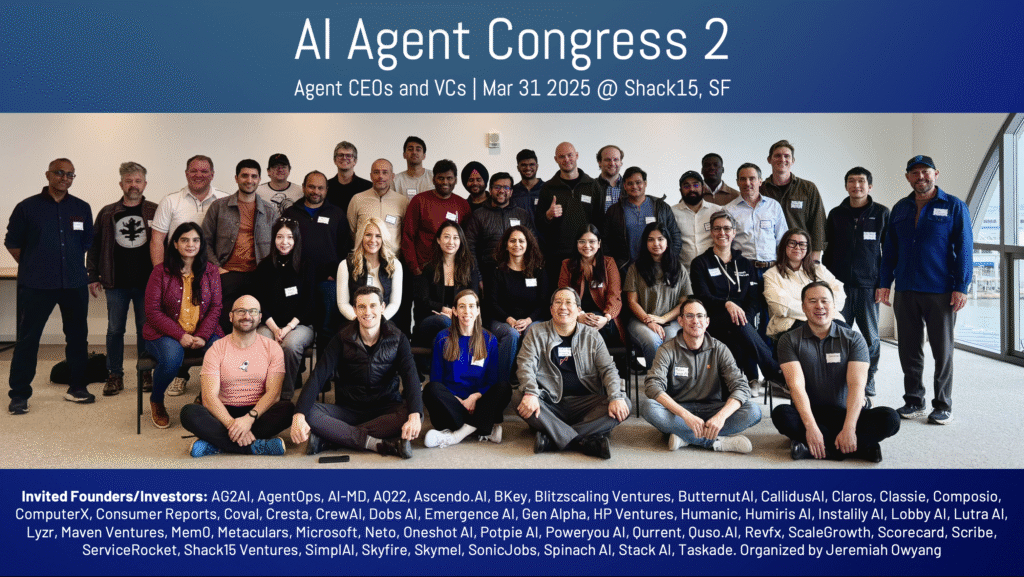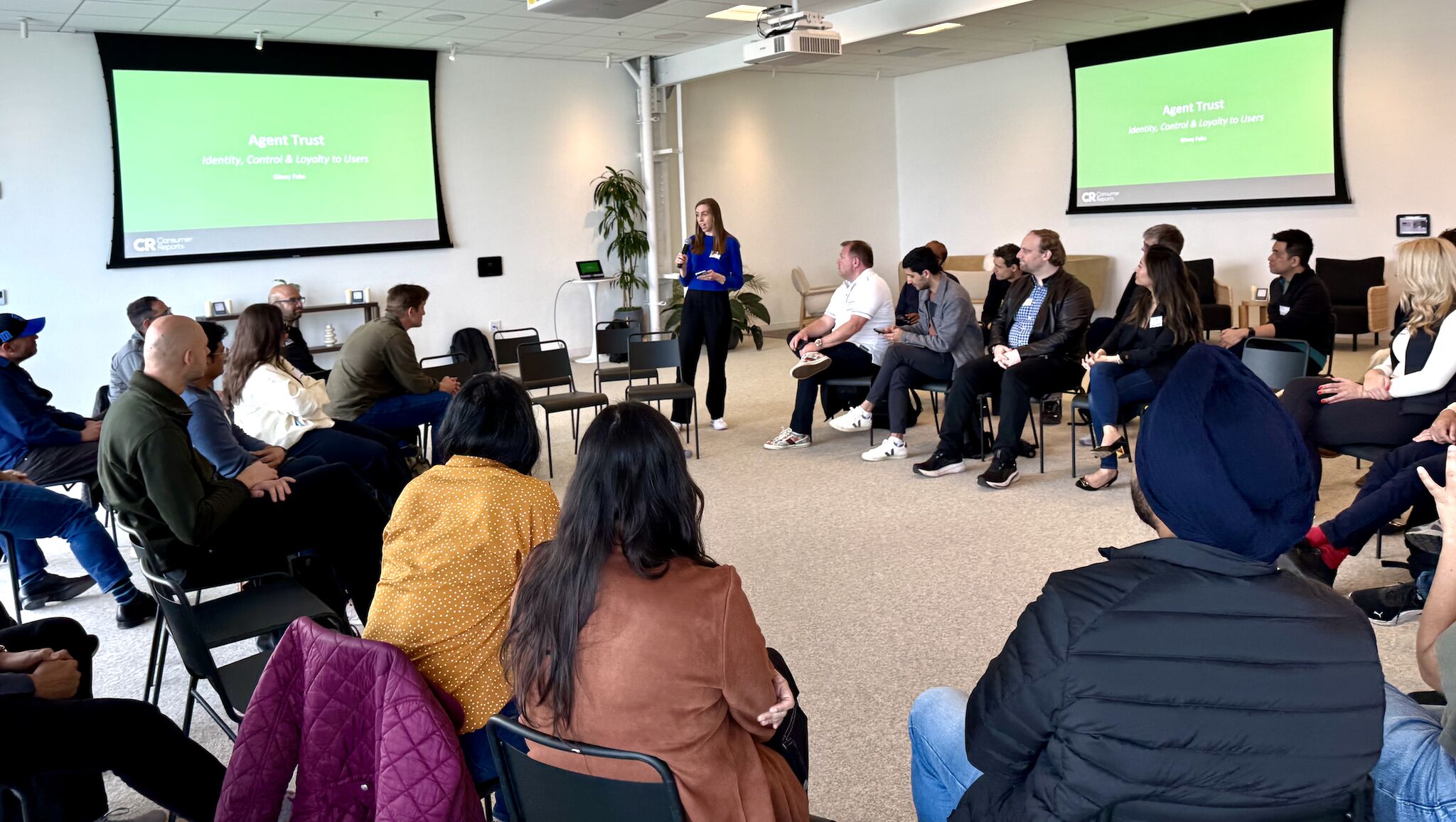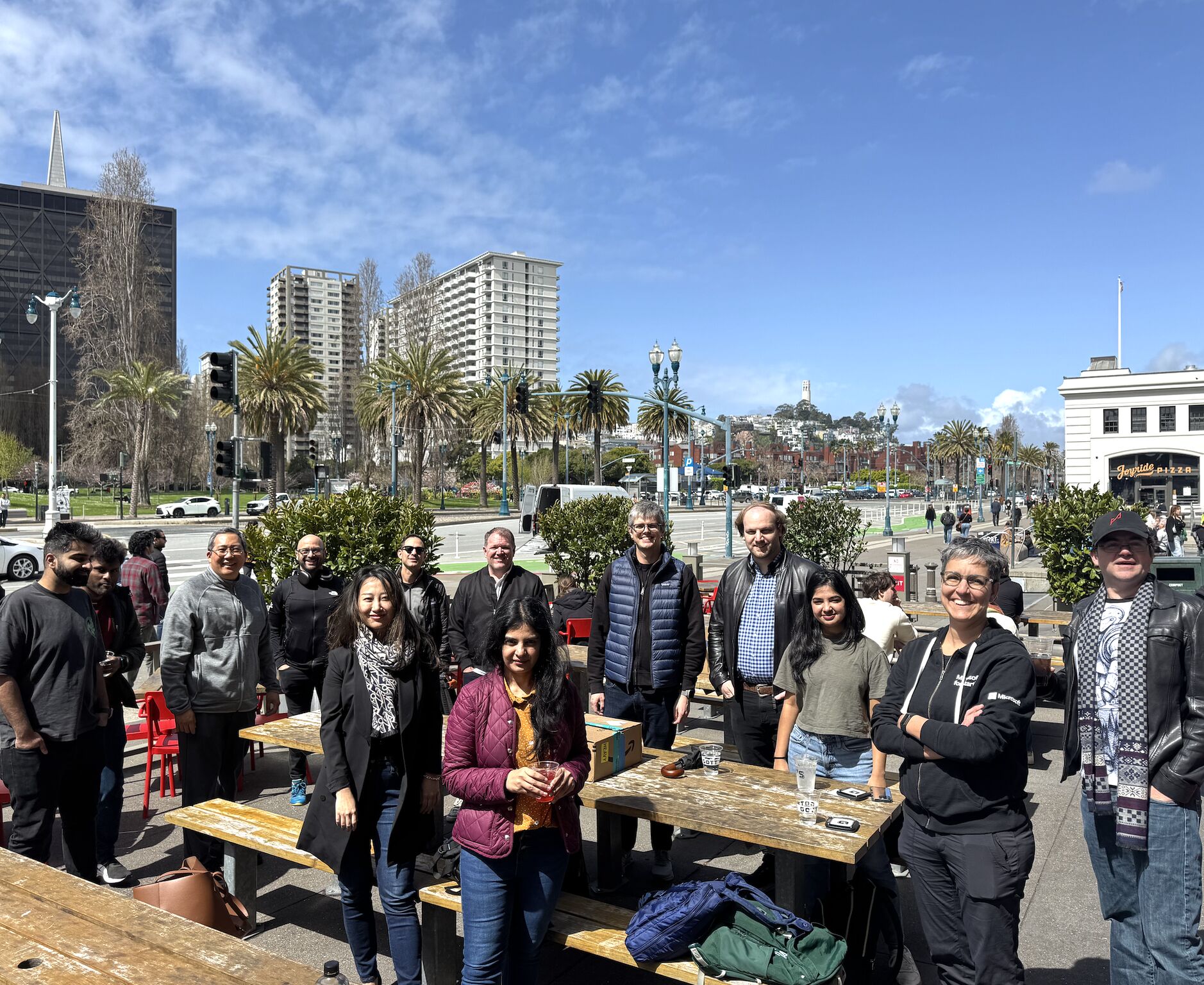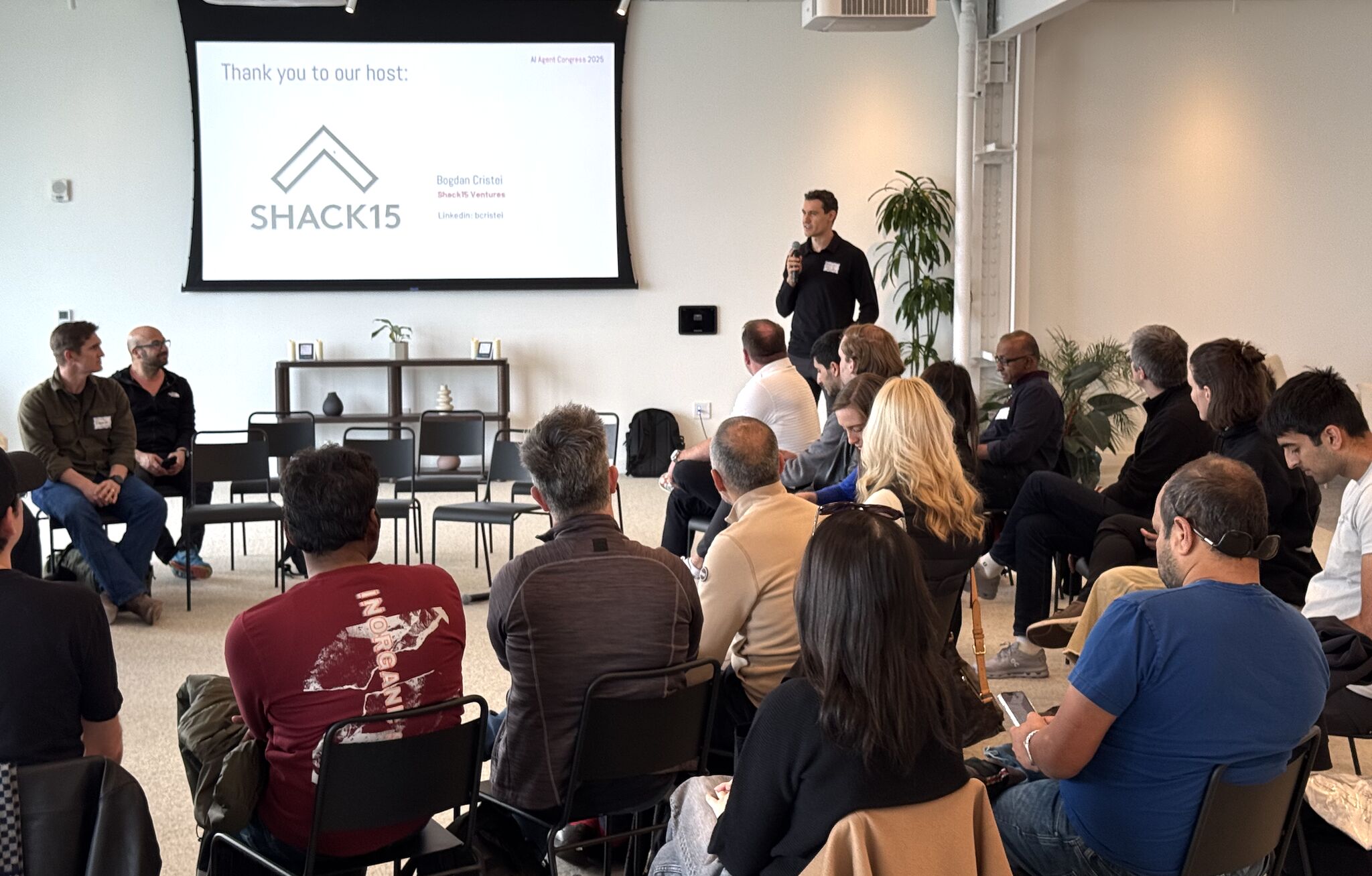What did 40+ AI Agent CEO/Founders talk about in a closed room session?

AI Agents: Software that can independently think and act, often in unison with humans or with other AI agents..
A few weeks ago, I hosted an intimate event for about 40+ AI Agent founders and select VCs to dive deeper into what’s happening in this emerging market. The event had a Chatham house rule, meaning anyone can use the insights, but we don’t reference others.
This post is an event recap, from the AI Agent Congress 2, and event I led, organized but was partnered with my friend Bogdan Cristei, hosted at SHACK15 above the Ferry Building in San Francisco.
Also we were led by a kickoff speech by Ginny Fahs from Consumer Reports who’s focused on standards within the agentic space.
It’s clear the leading agentic founders are deeply focused on three critical themes:
Topic 1: Trust & Control
Facilitated by Chris Yeh (Blitzscaling Ventures), founders explored:
How to build agent identities that remain loyal to users
How to maintain control boundaries
How to foster long-term trustThis was a top topic, as humans will need to trust AI agents like their own personal assistants to conduct tasks on their behalf.
Topic 2: Real-World Deployment
Facilitated by Bogdan Cristei (SHACK15), the group shared what’s actually working in production. Key takeaways:
Use cases included customer support agents, internal copilots, and early monetization approaches
A common pattern: AI agents gather all company or user cloud data, then provide natural language querying as the first feature
This makes sense—before agents can act, they need a complete view of the data
Topic 3 Multi-Agent Interoperability
Gabriela de Queiroz (Microsoft for Startups) led a discussion on:
Whether agents from different systems can—or should—work together
Expectations for emerging interoperability standards
A guest from the Robotics space shared lessons from manufacturing and robotics on how standards evolved—or failed to (warehouse or consumer robots were not able to adopt the heavier standards from car companies)
The Congress used an unconference format, allowing founders to self-organize around sticky-note-pitched topics. The breakout themes that followed were:
Go-to-Market, Multi-Agent Systems, Trust and new mediums
In the unconference breakouts, teams also explored pricing models. A few groups discussed a “pay for success” model, where agents are only paid if predefined goals are met. However, this introduces complexity—both parties must first align on what “success” means.
My take: subscription-based models, possibly with usage-based pricing, are more likely to prevail—unless the agent is designed for a niche vertical.



